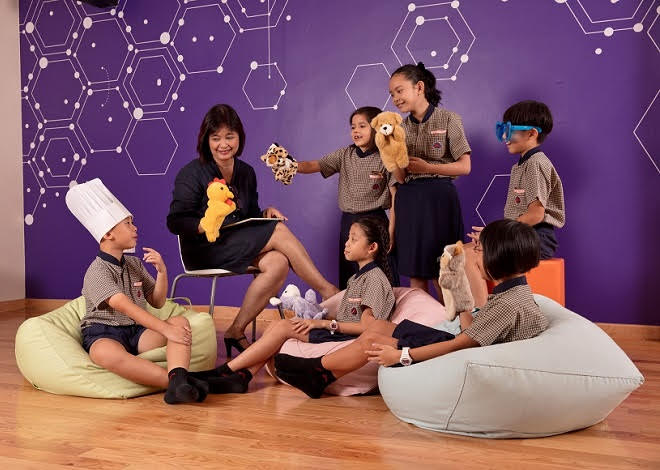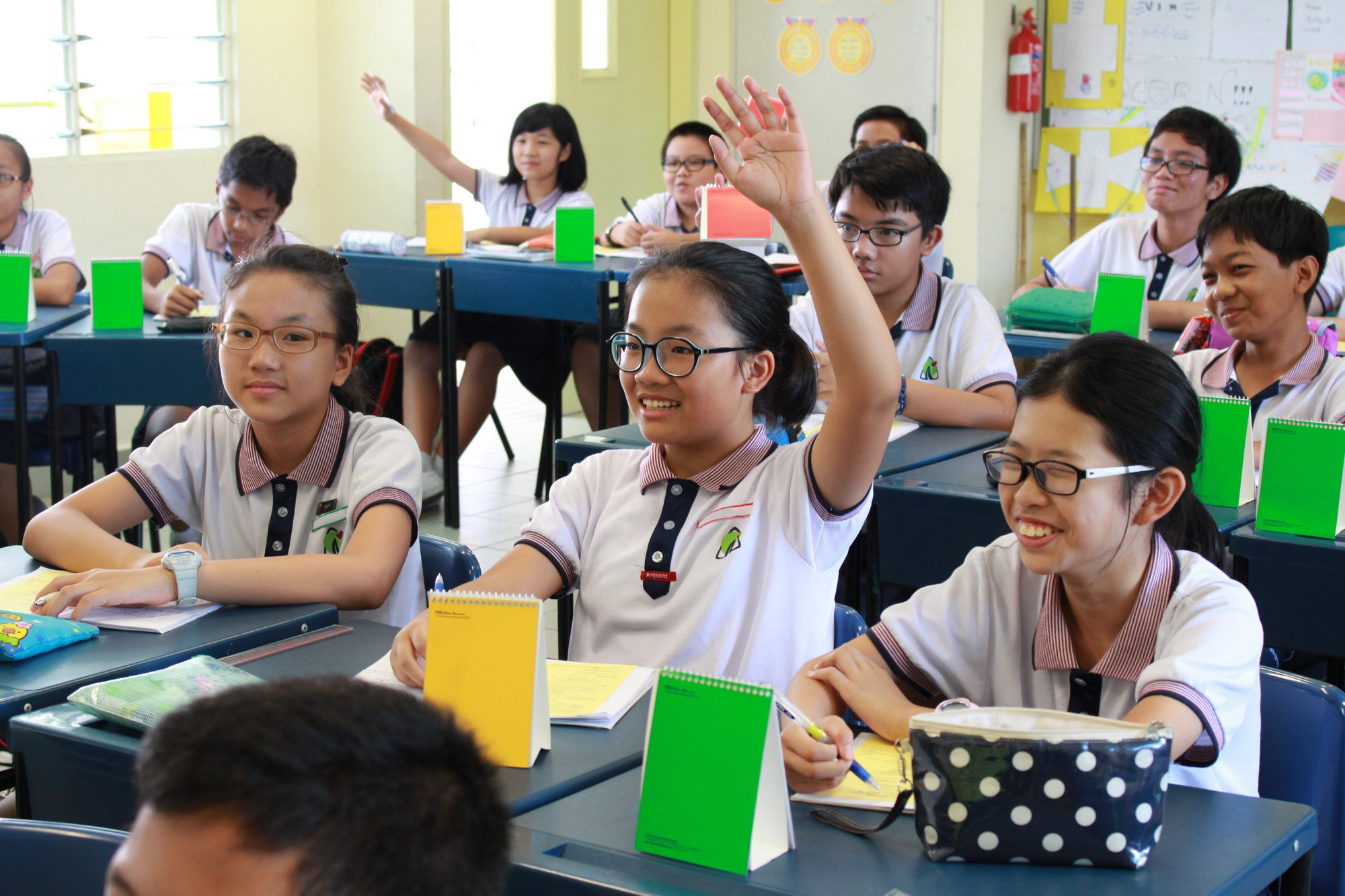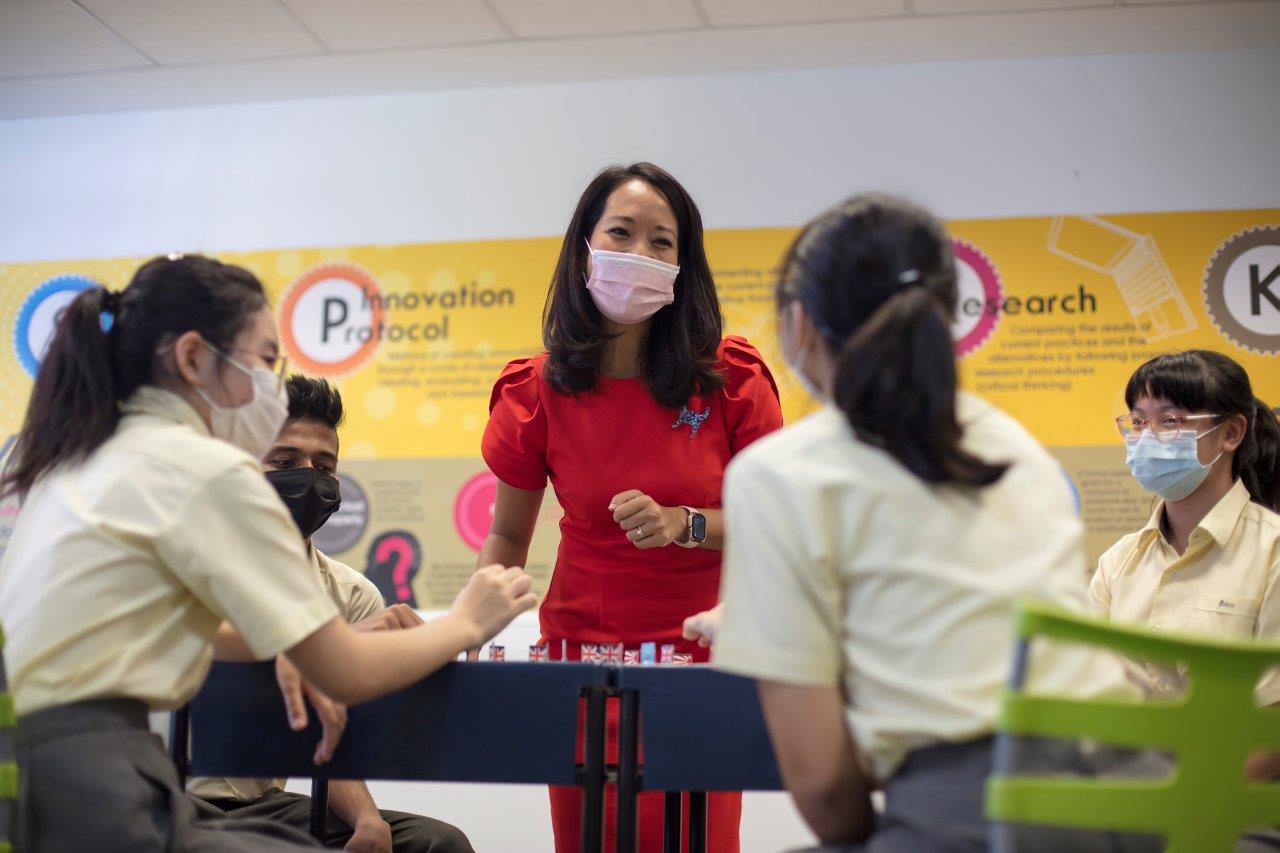Telling Stories, Teaching Confidence
13 Dec 2017

Norlina bte Ahmadi’s students may be young, but they will stand before large audiences speaking confidently. She believes this will prepare them well for life.
Norlina bte Ahmadi, Anderson Primary School, President’s Award for Teachers 2017 Finalist
When Jody first participated in a speaking competition, she was tongue-tied and unable to hear her own voice. Just two years later, the Primary 2 pupil aced a public speaking contest in the middle of a busy shopping mall.
This makeover is the doing of her English teacher Norlina, who has been hard at work developing the public speaking skills and self-esteem of Anderson Primary School’s students.
It began when Norlina noticed that her Primary 1 students were quite outspoken in the safe environment of the class, but would freeze up when put “on stage” during Show-and-Tell. Together with a team of teachers in the English department, they reviewed the Show-and-Tell programme, making changes to allow students to evaluate their own delivery, and plan their speeches better.
She also initiated the school’s Book Talk, in which one student would be trained each week to go on stage during assembly to promote a book they read, and highlight parts of the story that showcase school values.
The Book Talk sessions gained momentum, and students who had not been selected by their teachers to participate started coming forward to indicate their interest. The school then decided to raise the bar and prepare 10 of them to take part in their first competition, the 2015 I Can Read International Storytelling Competition.
Parents, the Best Cheerleaders
Norlina, also known as Mrs Redwan to her students, had not prepared students for speech competitions for many years, but was buoyed by the support that she received from their parents.
She conveyed to them how she would structure their training, with very small steps at the start. The first session, she recalled, was teaching the kids to smile. “We got them to come up on stage, look up, smile and go back. That’s all we did.”
One parent joked, “We sent them here for one hour just to make them smile?” But they were fully on board. They looked out for each other’s children, and helped to prepare costumes for them.
“If parents can see eye-to-eye with you on where their children are going, and support what needs to be done, a lot can be achieved,” says Norlina.
Winning with Words
Pressing ahead, she culled additional tips on public speaking from YouTube videos, and taught the students how to write persuasive speeches. Her key piece of advice: “Everyone has his or her own strengths. Know what your strengths are, and use them to your advantage.”
“If you can’t be animated, then don’t be animated. If you are not good at jokes, don’t crack a joke. It does not mean that if you don’t use a joke you are less of a public speaker than someone who does.”
Competition day came, and everyone’s efforts paid off when all 10 students went into the finals. The school swept the top three prizes, with Jody, the once-shy child, emerging the best individual speaker. Recalling the experience, Jody says, “I was so nervous I actually forgot one line on stage, but I remember the encouragement I got from Mrs Redwan. She said to stay calm and stay cool, and so I pulled myself together and managed to complete my speech.”
Spurred by her victory, Jody went on to win another public-speaking competition in Mother Tongue, and participated in this year’s Plain English Speaking Award (PESA).
Against the Odds
Reflecting on her experience, Norlina says: “Public speaking helps students build up their confidence and believe in themselves.” A case in point: a boy in her class who had Sturge-Weber Syndrome, a condition that manifests as red pigmentation on the face.
“He is a very smart boy – he is very good at Maths and speaks well,” she observed. “There are so many things that this child of 7 has to go through that I never had in my 48 years – the trauma, the pressure about his appearance. But he is a very kind boy and so optimistic, and when he speaks, he puts most of us to shame.”
Norlina paired the student with a different buddy every month and provided him with opportunities for public speaking, such as book-sharing sessions during recess. She also kept in close contact with the boy’s mother, whom she credited as being the boy’s “pillar of strength.” Together, they saw his confidence grow.
A Bigger Stage
Proud as she is of her students, Norlina wants the experience of public speaking to mean more than trophies.
“It is part of a long-term goal,” she says. “I want my kids to go up there and lend their voices to national conversations but more importantly, I want them to be able to think critically and to be responsible for what they say.”
And that, said Norlina, is very important to her as an educator. “I realise that my role as an educator does not stop with my 30 students in class. I need to make sure I prepare them for life.”
She wants her students to develop “an awe for learning”. “Sometimes, the small things that you learn to do can lead you to big things. If you are not afraid to speak, it can lead you to become someone who can speak well about something important,” she said.
Mrs Redwan is a kind and caring teacher, and she helped me to build up my confidence. – Eva Ng Ya Xuan, Primary 3

.jpg)



